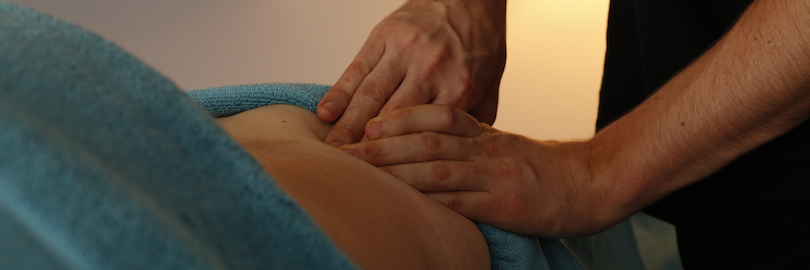A muscle is made up of bundles of muscle fibres. If a muscle has been damaged or put under a lot of stress, micro tears occur within the muscle fibres. When the body starts to heal, it lays down new fibres in a mesh like pattern. This process can cause adhesions or scar tissue within the muscle which may decrease range of motion. Massage realigns these fibres so that the muscles can relax and contract properly. The pressure required to realign these fibres, particularly in the deeper muscles, can cause slight inflammation commonly known as bruising. If the tightness, spasm or active trigger point within a muscle occurs in deeper layers, then it may be necessary to apply relative pressure through the superficial layers of tissue to get to the deeper layers of muscle. During this process a slight inflammatory response may occur which may be felt as tenderness or bruising over the area worked.
What you can do to help minimise soreness after treatment:
Do any stretches or self trigger-pointing that the therapist has recommended to encourage the muscles to stay in their new lengthened position. Increase water intake to help flush out waste products that are released into the system after a massage. This will help reduce the feeling of tiredness that may occur. Approximately 1 litre on top of your normal intake is recommended. Avoid excess alcohol, tea, coffee and other toxins for 24 hours after a massage so that you are not further overloading the lymph system while it is trying to effectively liminate _waste products. If you intend to exercise in the 24 hours following a massage, please consult your therapist regarding guidelines. It is essential that you warm up and cool down well pre and post exercise, particularly after a massage has altered your muscle length. Follow the directions that the therapist has given in regards to using heat or ice treatment.





